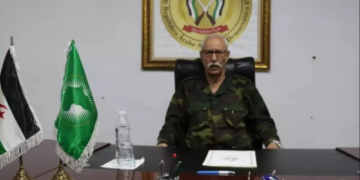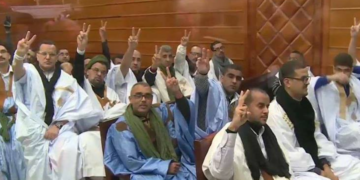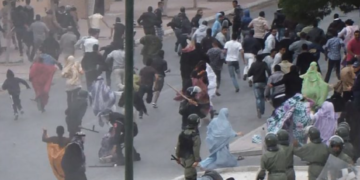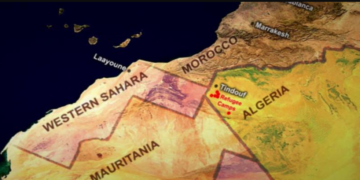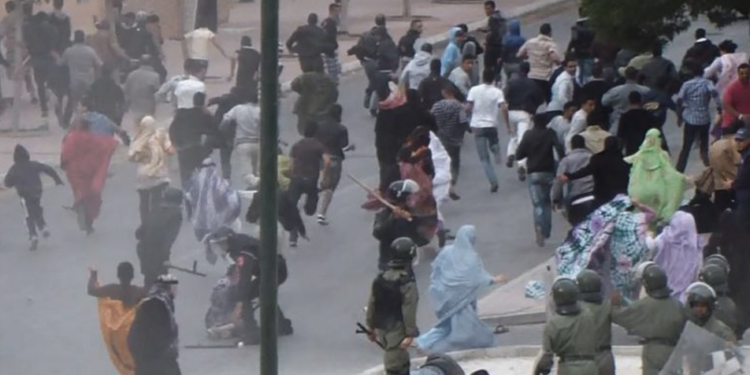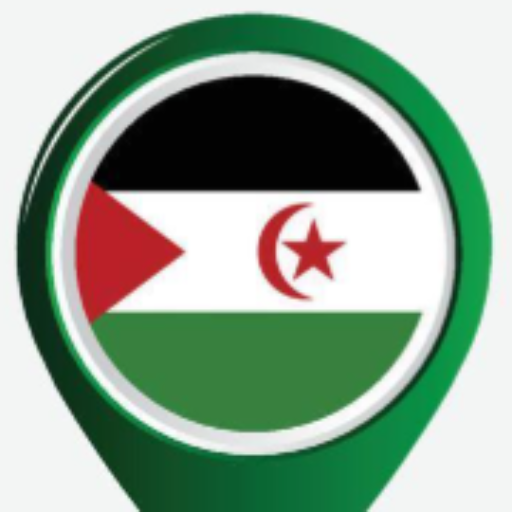Freedom of expression is a fundamental right enshrined in international instruments such as the Universal Declaration of Human Rights and the International Covenant on Civil and Political Rights. However, the Sahrawi people in Western Sahara face systematic suppression of their right to express their political and cultural opinions. This suppression is particularly evident in the Moroccan authorities’ policies aimed at controlling the region and silencing voices advocating for independence.
Repressive Laws as Tools of Control
One of the primary mechanisms used by Moroccan authorities to suppress freedom of expression in Western Sahara is the application of vague legal provisions targeting “territorial integrity” and the “royal regime.”
- Article 5-267 of the Moroccan Penal Code:
This article imposes harsh penalties, including imprisonment and hefty fines, for those convicted of offenses such as harming Islam, the monarchy, or inciting actions against Morocco’s territorial integrity. The penalties include:- 6 months to 2 years of imprisonment and fines ranging from 20,000 to 200,000 dirhams.
- Increased to 2 to 5 years of imprisonment and fines of up to 500,000 dirhams if the actions are committed publicly, including via electronic or audiovisual media.
- Misuse of the Law:
This law is frequently exploited to fabricate charges against Sahrawi activists. Advocating for independence or participating in peaceful protests is often labeled as incitement to separatism.
Examples of Violations Against Sahrawis
- Arbitrary Arrests of Human Rights Activists:
- Activists advocating for self-determination in Western Sahara are arrested on fabricated charges such as “disturbing public order” or “harming territorial integrity.”
- Example: The “Gdeim Izik” Group Case, where activists were sentenced to severe punishments based on confessions obtained under torture.
- Suppression of Peaceful Protests:
- Protests in major cities like Laayoune and Smara are met with excessive force from security forces, including violent crackdowns and arrests of demonstrators, including women and children.
- Protesters are portrayed as troublemakers to justify the repression.
- Fabrication of Online Charges:
- Sahrawis expressing their opinions on social media are targeted. Posted materials are used as evidence in trials, leading to accusations of using the internet to incite unrest or criticize the monarchy.
- Violation of Fair Trial Rights:
- Trials lack guarantees of justice, with confessions obtained under duress being accepted as evidence.
- Courts often issue harsh sentences influenced by political directives rather than legal merits.
Legal Evidence and International Frameworks
- Violation of International Covenants:
- Morocco is a party to the International Covenant on Civil and Political Rights, which stipulates in Article 19:”Everyone shall have the right to freedom of expression, including the freedom to seek, receive, and impart information and ideas of all kinds.”
- Reports from International Organizations:
- Organizations like Human Rights Watch and Amnesty International have documented violations in Western Sahara, including systematic suppression of protests and arbitrary arrests of activists.
- These reports highlight Morocco’s use of laws like Article 5-267 to silence dissent.
- UN Resolutions:
- Western Sahara is classified as a non-self-governing territory by the United Nations, making it subject to international law and affirming the Sahrawi people’s right to self-determination.
Findings and Recommendations
- Findings:
- Moroccan authorities use legal frameworks as tools to suppress voices advocating for self-determination.
- Systematic violations include arbitrary arrests, unfair trials, and excessive use of force.
- Recommendations:
- International Pressure:
- The international community and human rights organizations must intensify pressure on Morocco to respect human rights in Western Sahara.
- Global Awareness:
- Widespread dissemination of documented violations to expose repressive policies.
- Legal Support for Sahrawis:
- Provide legal assistance to detained activists and ensure fair trials.
- International Pressure:
The suppression of freedom of expression in Western Sahara remains one of the most significant challenges faced by the Sahrawi people in their struggle for self-determination. The use of repressive laws like Article 5-267 to stifle dissent reflects a systematic policy aimed at silencing opposition. Highlighting these violations through documented evidence and testimonies is a crucial step toward achieving justice for the Sahrawi people.

